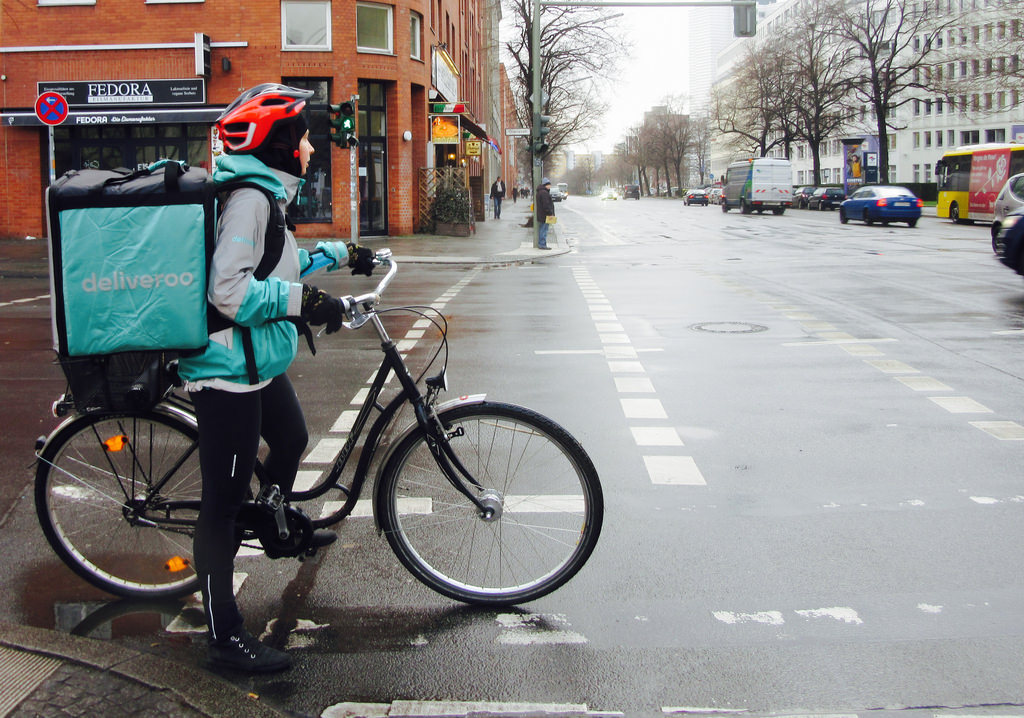Deliveroo riders have been ruled self-employed by labour law body the Central Arbitration Committee (CAC).
The test case was brought against the delivery company by the Independent Workers Union of Great Britain (IWGB) .
The IWGB said the ruling showed a majority of Deliveroo riders wanted workers’ rights and union recognition. But the CAC found they were self-employed because of their freedom to “substitute” – allowing other riders to take their place on a job.
Just last week an Employment Tribunal ruled that Uber drivers should be classed as employees, therefore giving them employment rights such as paid holiday leave and National Minimum Wage.
Commenting on the result, Seb Maley, Qdos Contractor CEO, says, ‘The Deliveroo case is yet another indication that employment law is far too complex and needs to be simplified. The boundaries between what constitutes as an employee, a contractor and even a gig economy worker must be made clearer for all parties involved.
‘This is made all the more important given the uncertainty surrounding IR35 currently. Without clarity over the definitions of each worker, how can we expect the companies engaging them to make accurate employment status decisions in the public sector and potentially the private sector?
‘With Deliveroo, substitution was the pivotal element in deciding riders were self-employed. But in recent public sector IR35 reform, substitution was a huge grey area, simply emphasising the need for clarity in employment law across the board.’
Julia Kermode, chief executive of The Freelancer & Contractor Services Association (FCSA), says, ‘The Deliveroo result is good news for Deliveroo and those couriers who value the flexibility that comes with being a self-employed rider. The whole case hinges on the detail of the contract and the central arbitration committee found that these riders were self-employed because of their freedom to “substitute” and allow other riders to take their place on a job.
‘This is an important clause but caution is needed as a contractual substitution is not the magic solution for any company looking to falsely deem its workforce as self-employed and shun its employment responsibilities. It is the working practices that should be borne in mind, not just the contract, and how that right of substitution might work in practice.’
Kermode adds, ‘If it is a genuine unfettered right of substitution that has been acted on in practice then the engagement starts to look more like self-employment; by comparison an employment relationship does not allow for such a substitution. Employment status is complex and what is important is that employers need to carefully consider how they engage their workforce whether they are genuinely employed or self-employed. Large numbers of highly skilled professionals choose self-employment status because it gives them the freedom and flexibility to operate as a business in their own right.
‘However there are incidences where self-employment is forced upon people inappropriately. Employers should treat their workforces properly so that exploitation cannot happen and it is unacceptable that some workers do not have minimum rights or protections. As the gig economy is on the rise we need to act to protect the vulnerable and precarious whilst not unfairly penalising genuinely self-employed people.’
Alan Price, employment law director at Peninsula comments, ‘Hot on the heels of the Uber decision, the Central Arbitration Committee have decided Deliveroo riders are self-employed contractors, and not workers.
‘The Independent Workers’ Union of Great Britain (IWGB) sought union recognition on behalf of Deliveroo riders. To do so, the CAC first had to decide that the riders were workers, not self-employed. The CAC ruled that the riders had a genuine right to substitute another person to carry out their work for them, before accepting a delivery and after accepting a particular delivery, and there was evidence this took place in reality. Therefore, the riders could not be classed as workers.
‘This ruling shows the need for careful drafting of substitution clauses and, in particular, the importance of operating in line with the contractual documents. Many other ‘gig economy’ employers, such as CitySprint, have failed at the substitution argument because they didn’t allow this to happen in practice and the contractual clause was a sham.
‘This decision will be seen as a victory for Deliveroo as they will not have to provide worker rights to their riders, such as holiday pay or minimum wage. An employment status claim has already been lodged at the employment tribunal on behalf of 45 Deliveroo riders so this could, in theory, see a different result. There is likely, however, to be a strong argument that the tribunal should be persuaded by the CAC decision to reach the same outcome.’





